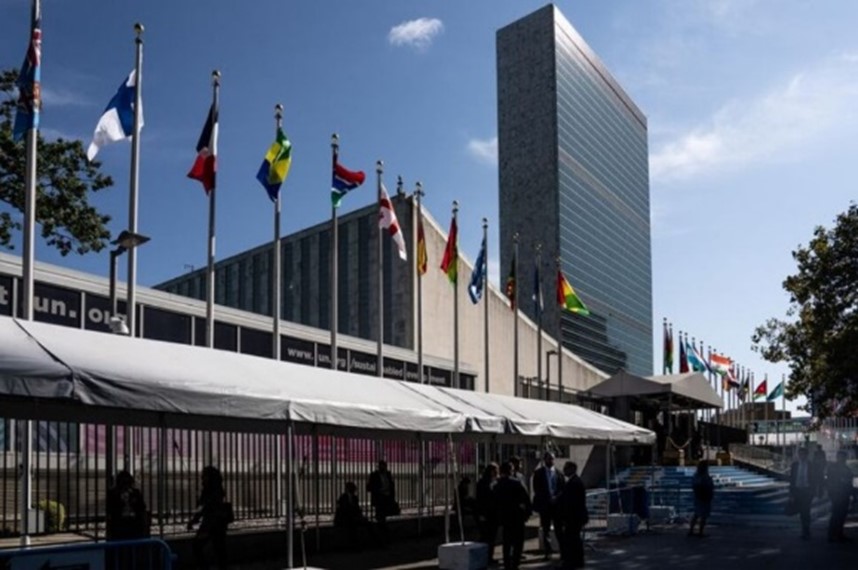
Leaders at U.N. Climate Summit Warn of Rising Mistrust Between Nations
On Sunday, U.N. Secretary General António Guterres kicked off a two-day "Summit for the Future," as part of the U.N. General Assembly, where global leaders expressed concern over growing mistrust between nations as climate-driven disasters become more frequent. The summit began with the adoption of a "Pact for the Future," aimed at strengthening international cooperation, with many leaders calling for immediate access to increased climate financing.
"Global challenges are advancing faster than our capacity to address them," Guterres said. "Crises are interlinked, and as digital technologies fuel climate disinformation, they deepen distrust and increase polarization."
Barbados Prime Minister Mia Mottley echoed these sentiments, calling for a "reset" in the governance of global institutions to better address crises and support vulnerable communities. "Mistrust between those in power and the people will only lead to further social alienation when we need widespread engagement to shape a new world," Mottley warned.
The U.N. climate summit continues with speeches from major nations including China, India, and the United States. Later this week, U.S. President Joe Biden is scheduled to speak at a high-profile event, alongside notable figures like actress and climate activist Jane Fonda and World Bank President Ajay Banga. Additionally, an event hosted by the Clinton Foundation will feature speeches from Prince Harry, Duke of Sussex, and actor Matt Damon, who advocates for clean water.
An Urgent Agenda
Climate summits, including New York's Climate Week held in conjunction with the U.N. General Assembly, have become increasingly critical in recent years, as rising global temperatures drive extreme weather events like heatwaves and storms. The Climate Group, which oversees Climate Week, reported that around 900 climate-related events are taking place across the city, organized by multinational corporations, governments, non-profits, and activists.
Despite the urgency, some observers were disappointed that the global pact adopted during the summit did not go beyond last year's COP28 summit in Dubai, particularly in reaffirming the need to transition away from fossil fuels. Alden Meyer, a senior associate at climate think tank E3G, criticized the "collective amnesia" among leaders regarding the need to address the role of fossil fuels in climate change.
One of the immediate challenges ahead is the fast-approaching COP29 climate summit in Baku, Azerbaijan, leaving little time for nations to agree on a new global finance target. This is meant to replace the current annual $100 billion climate finance pledge, which expires in 2025. With some U.N. agencies estimating the need for trillions of dollars in climate financing, leaders are looking to institutions like the World Bank and other multilateral development banks to step up their efforts.
Under the leadership of countries like Barbados, France, and Kenya, discussions continue about imposing new global taxes, such as a financial transaction tax or shipping tax, to fund climate initiatives.
Patricia Scotland, Secretary General of the Commonwealth, highlighted the unfair burden on poorer countries, which face both the devastating impacts of climate change and mounting debt. "We need to recognize the injustice of the debt crisis that many developing countries are suffering from," she said. "Development banks and the World Bank need to respond to this reality."